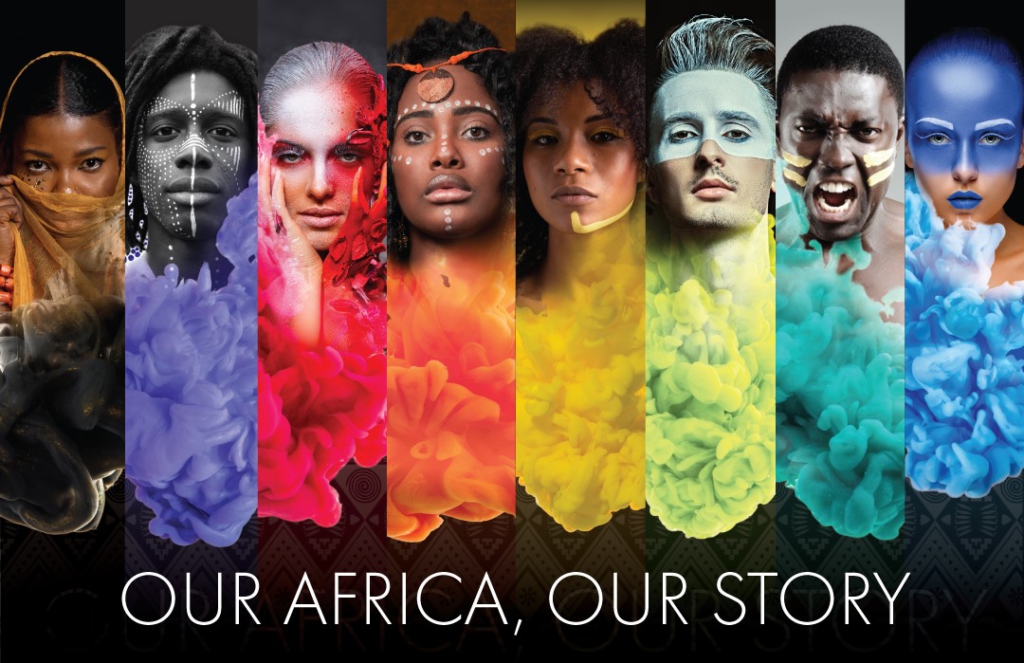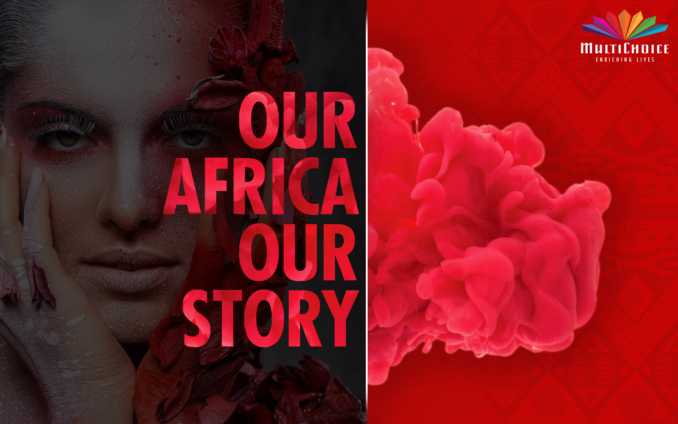The world is waking up to Africa’s creative power, and it is more important than ever for us to take this opportunity as we continue developing our creative industries.
As we mark Africa Week, Yolisa Phahle, CEO General Entertainment and Connected Video at MultiChoice, emphasises the economic benefits of investing in our local industry and the need for people to see themselves represented in the entertainment they watch.
Africa’s star is rising. The continent is taking its place on the global stage as demand for our unique and exciting contribution to the world increases. Africa’s presence is finding expression in numerous fields, but in few areas has it been as pronounced as in the creative arts and entertainment.
Who did not celebrate the appearance of African brands like Maxhosa by Laduma at New York Fashion Week?
Who, indeed was not excited to see our cultures taking pride of place in movies like Black Panther, or in Beyonce’s extended video for Spirit + Bigger?

Listen to the Beyoncé’s Lion King: The Gift featuring African greats like Shatta Wale (Ghana), Davido, Tiwa Savage, Major Lazer, Burna Boy and tell me it doesn’t warm your African heart!
These are real signs of African achievement, and an acknowledgment of the rich culture that has inspired people in so many other parts of the world. Authentic representation matters: global audiences are hungry for new voices and being positively acknowledged at home and abroad inspires us to create even more.
However, these are small steps and there remains a lot to do to ensure that Africa’s true potential is realised. While seeing ourselves on screen is certainly progress, it is not yet true representation when it is through the eyes of others. It is unbelievable that our pre-colonial history has still barely been told from the African perspective. The story of Vikings, of Columbus and many western historical dramas have been used to educate audiences whilst so many of our stories remain untold.
There is much work to be done to ensure that Africa’s people see themselves accurately reflected in the content that they consume. And that’s where we as consumers, producers, broadcasters, teachers and as a community have a role to play.
Much as Africa is underrepresented in the rest of the world, there is still room for more African content to be shared on Africa’s own media platforms.
At Multichoice, we are proud to be a part of this journey, helping to create platforms and make investments that support this evolution.
As content producers, we also understand how critical it is that we not only tell our own stories, but that we do so using the highest possible standards and production values. We need to raise the bar so that we can also play on the international stage alongside countries like Brazil, India, Turkey, and South Korea. But more importantly we need to be the best we can for our audiences who deserve nothing less and are highly appreciative of the added enjoyment that quality, locally resonant storytelling provides. Quite rightly they are also unforgiving of anything that falls short of the high standards they have come to expect.
To help to realize this vision, we take a “hyperlocal” approach, producing relevant content within the respective regions of our continent, as opposed to a one-size-fits-all strategy with generic African and international content.
We have found an almost insatiable appetite for authentic local content. The more local entertainment we serve, the less international content audiences choose to watch! African audiences, like others across the world, respond enthusiastically to seeing themselves, and their communities represented by homegrown productions in their language. In the last few months we have launched the first Pan African lifestyle channel. Honey celebrates how we live, how we aspire to live and brings style makers from across the continent to a single destination. We now carry programming in 41 languages and recently added channels in Amharic and Akan (on Akwaaba Magic).
A hyperlocal approach to content creation also often makes business sense, as even commoditised American studio content is expensive when it must be paid for in US dollars.
A rule of thumb is that content will be most successful when it reflects the values, culture, and language of its audience. It’s worth remembering that even United States content is “local” in the US. The fact that it travels internationally is largely because audiences have become accustomed to the culture after decades of the US building and driving demand for their language and cultural norms.
Homegrown, hyperlocal content strikes a blow against this homogenisation of culture by celebrating what makes us unique. At the same time, it creates opportunities for entire industries. Every time we create local content instead of simply purchasing an international series, hundreds of opportunities are created for African writers, actors, directors, producers, show-runners, caterers, stylists and others.
In South Africa, the local filmmaking industry has been facilitating international movies, series and commercials for decades. The country already exports talent and productions to the rest of the world, especially in commercial production. Now it’s time to work with our talented industries to take African stories further afield.
In other territories, such as Kenya, Ghana, Uganda and Nigeria, similar nodes of creative and professional excellence are taking root. We look forward to a time when every country on the continent is producing world-class, authentic, and locally relevant African content for its own audiences, and the diaspora.
As we mark Unesco Africa Week fittingly, with the theme "Peace, innovation and sustainable development in Africa" we celebrate African excellence in all creative fields. Already, our fascinating, vibrant and powerful continent is reclaiming its rightful place on the world stage. The future looks even brighter as we strive to take African stories to the world.
Let us all claim that place in the spotlight. Our people deserve to see themselves reflected in our own content, produced by our own people. That change is happening right beneath our feet. Long may it continue, and may the world come to appreciate the true value of Africa.
*Unesco Africa Week runs from May 24-30.
For more information on the MultiChoice Group’s African content offering visit https://www.multichoice.com/our-africa-2021/
Latest Stories
-
We thank God for the 2024 general elections – Akufo-Addo
7 minutes -
Coconut Grove Beach Resort marks 30 years of excellence with memorable 9 lessons & carols service
18 minutes -
WAFU B U-17 Girls’ Cup: Black Maidens beat Nigeria on penalties to win inaugral tournament
1 hour -
Real Madrid beat Sevilla to keep pressure on leaders Atletico
2 hours -
Liverpool put six past Spurs to go four points clear
2 hours -
Manchester United lose 3-0 at home to Bournemouth yet again
2 hours -
CHAN 2024Q: ‘It’s still an open game’ – Didi on Ghana’s draw with Nigeria
2 hours -
CHAN 2024Q: Ghana’s Black Galaxies held by Nigeria in first-leg tie
3 hours -
Dr Nduom hopeful defunct GN bank will be restored under Mahama administration
4 hours -
Bridget Bonnie celebrates NDC Victory, champions hope for women and youth
4 hours -
Shamima Muslim urges youth to lead Ghana’s renewal at 18Plus4NDC anniversary
5 hours -
Akufo-Addo condemns post-election violence, blames NDC
5 hours -
DAMC, Free Food Company, to distribute 10,000 packs of food to street kids
6 hours -
Kwame Boafo Akuffo: Court ruling on re-collation flawed
7 hours -
Samuel Yaw Adusei: The strategist behind NDC’s electoral security in Ashanti region
7 hours

